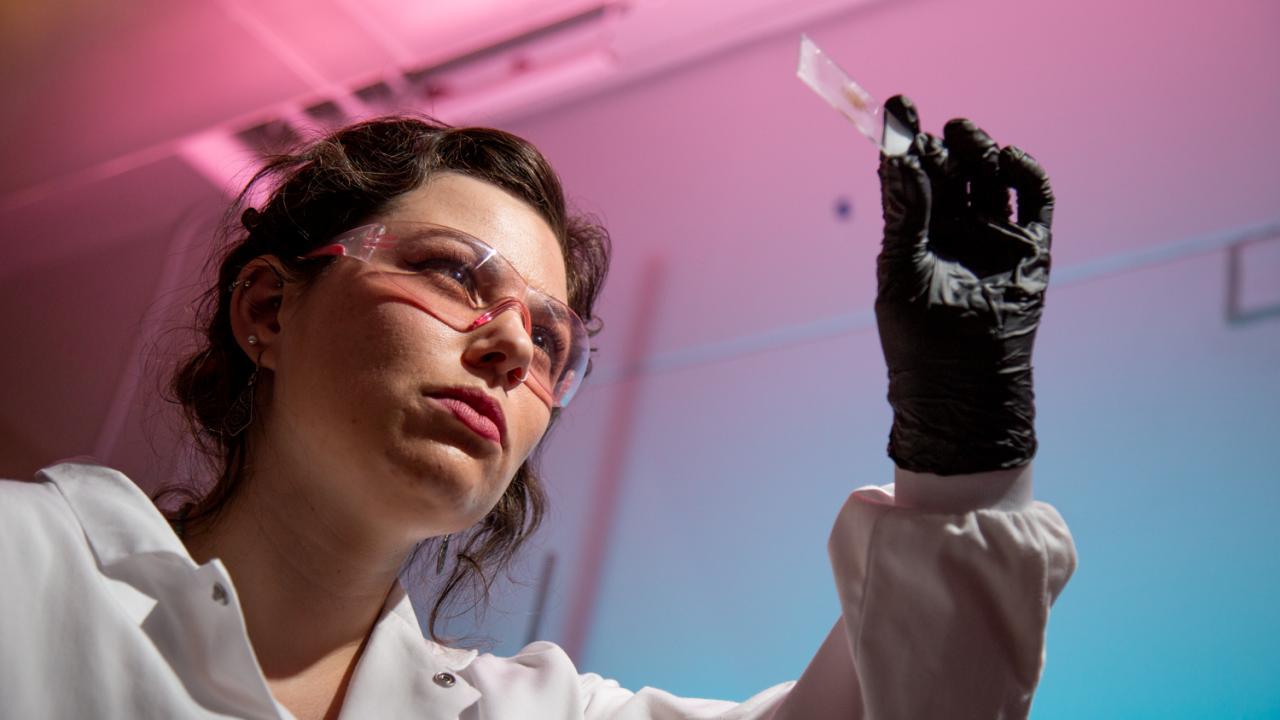
Prize for Neuroscience Graduate Student Studying Psychedelics
Lindsay Cameron, a neuroscience Ph.D. student, was among this year's 13 recipients of the Harold M. Weintraub Graduate Student Award.
Presented by the Fred Hutchinson Cancer Research Center in Seattle earlier this month, the award recognizes outstanding achievement during graduate studies in the biological sciences. Nominations for this prestigious annual award are solicited internationally. This year’s awardees come from across the U.S., as well as from Switzerland, the U.K., and Austria. Originally established in 2000, the awards are bestowed annually, and to date there have been 302 recipients, including this year's honorees. Winners are selected for the quality, originality and significance of their work, and represent a diverse range of research topics.
A member of the Olson Lab, Cameron's doctoral research has focused on understanding the therapeutic mechanism of action of psychedelic compounds. She aims to understand if the hallucinogenic properties of psychedelics are necessary to achieve therapeutic effects, or if these two phenomena are dissociable. Using primary neuronal cell culture and animal behavior studies, Lindsay has determined that the perceptual disturbances (hallucinations) and therapeutic properties can indeed be decoupled. Together, Lindsay and her colleagues have developed and tested novel rapid-acting antidepressants that are non-hallucinogenic. These data provide an important starting point for the design of safer next-generation therapeutics for treating depression, post-traumatic stress disorder, and addiction.
Cameron's research explores therapeutic uses of psychedelics.
